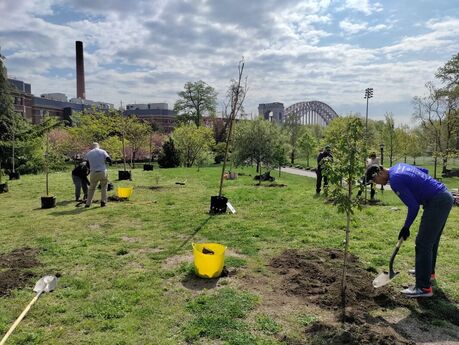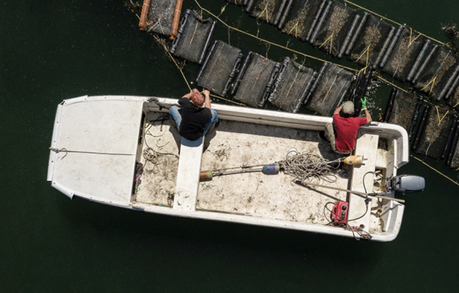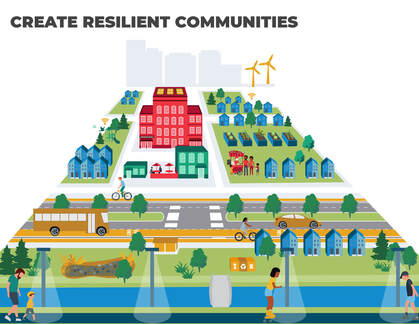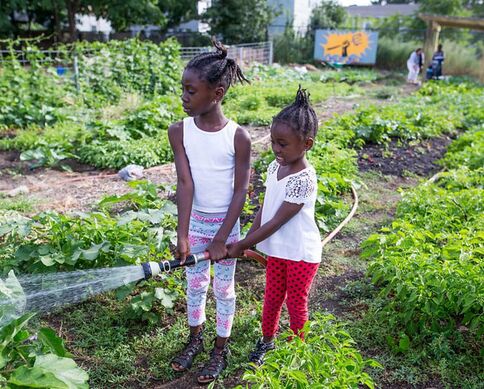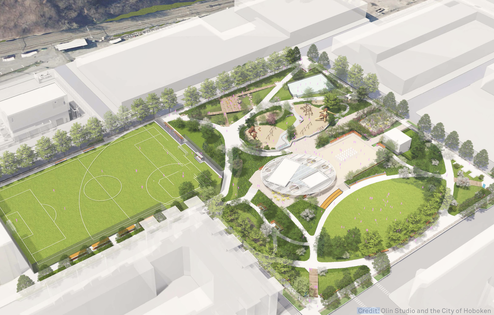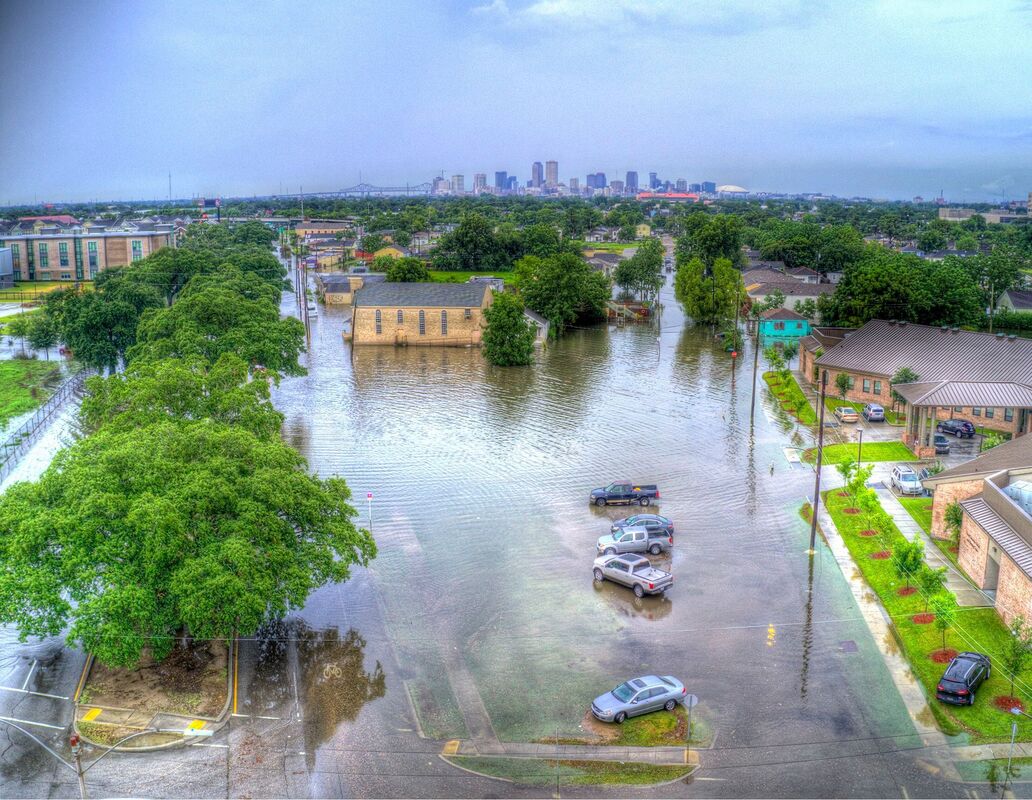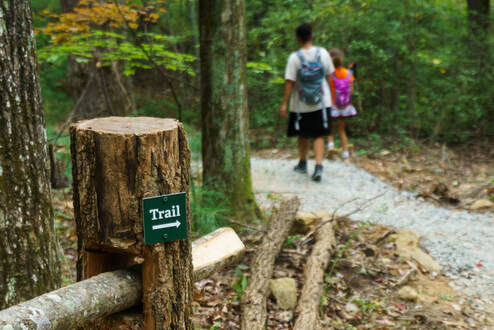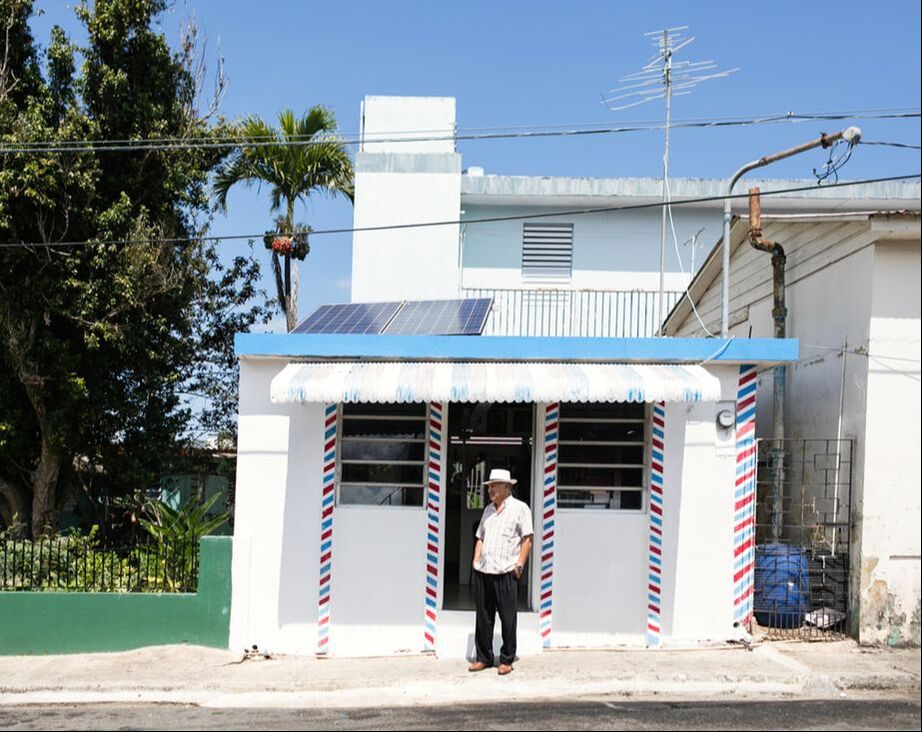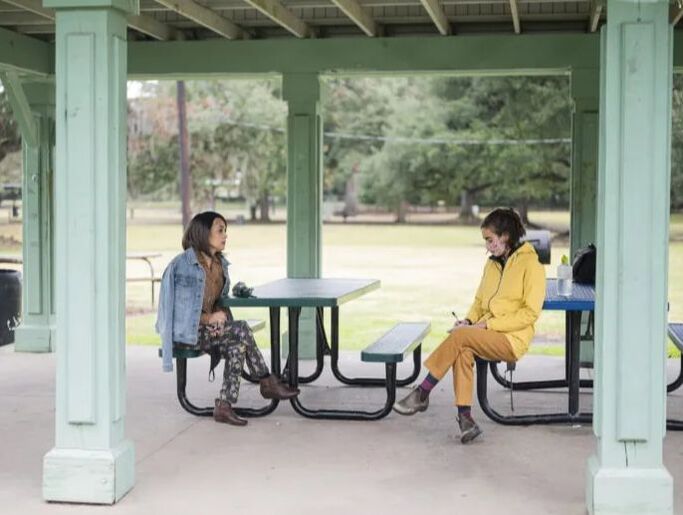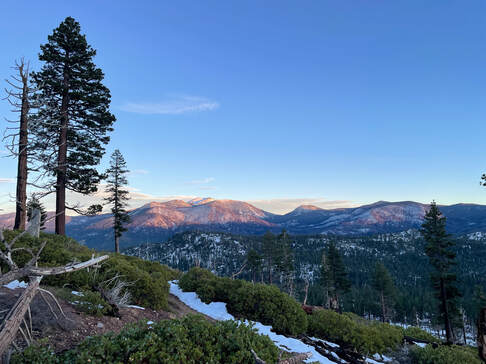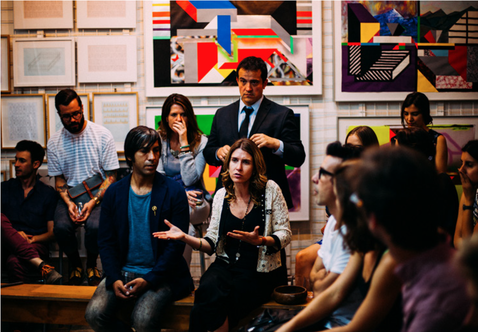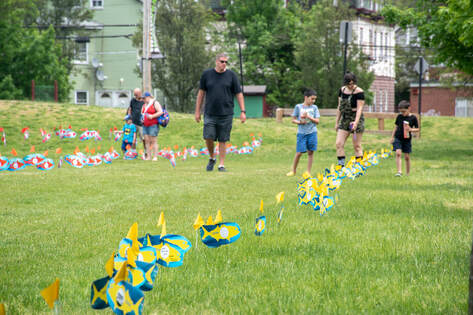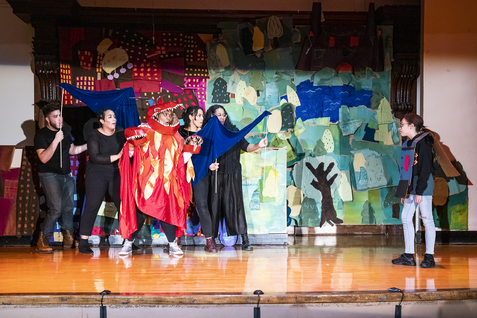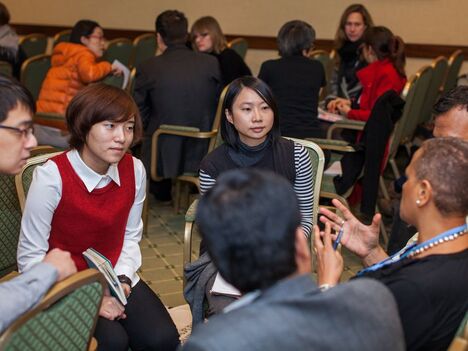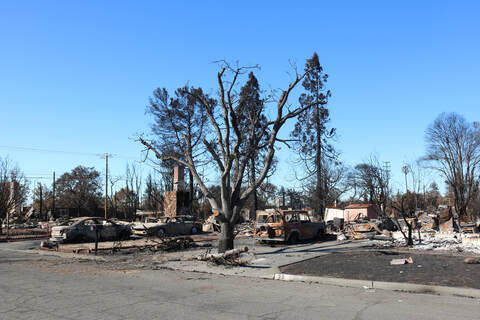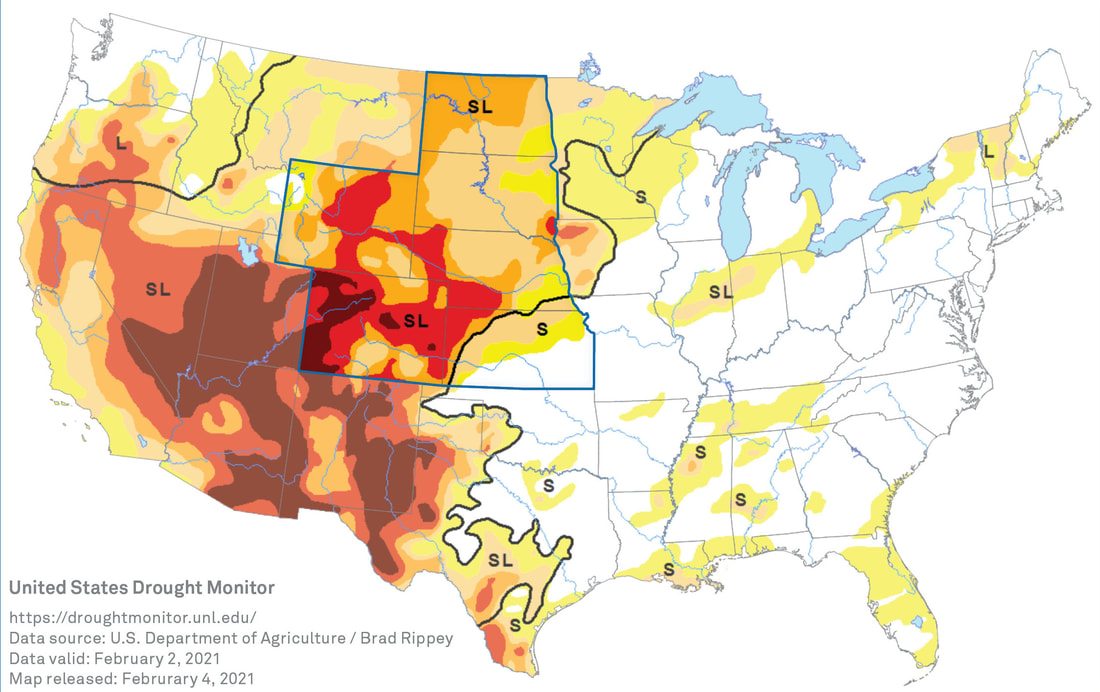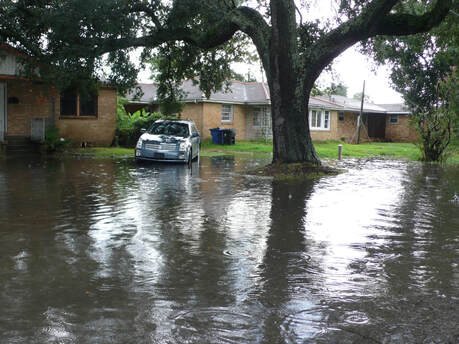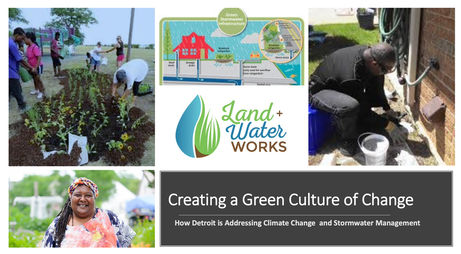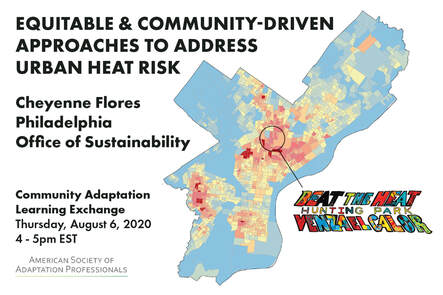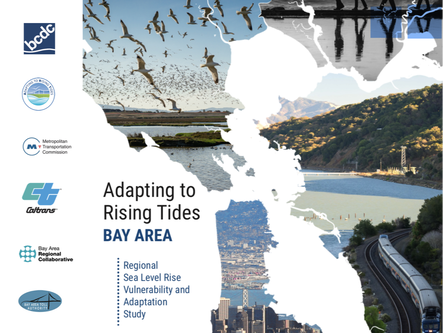Upcoming Session
Check back soon!
2023-2024: Connecting Disciplines
CALE's theme for 2023-2024 is exploring how climate adaptation is becoming part of community-based work in unexpected ways across sectors.
|
Transforming Schoolyards for Community Resilience
Danielle Denk and Molly Morgan of the Trust for Public Land Thursday, June 13 at 4 pm ET / 1 pm Parks are essential for healthy, equitable, and resilient communities. Across the US, many urban communities lack access to parks and quality open space. Yet almost 20 million people without park access, including kids and their families, live within a 10-minute walk of a public school. This session explored the Trust for Public Land’s pioneering Community Schoolyards program and their efforts to leverage schoolyards for climate action and resilience. Providing context from the national program and using case studies from the Dallas Schoolyard Program, we discussed the implementation strategy, the collaborative planning process, design of the schoolyards, and wider implications for climate education and action, heat island reduction, and community resilience. |
|
Climate Preparedness in the Healthcare Sector
Dr. Catharina Giudice, Center for Climate, Health, and the Global Environment, Harvard University November 30 at 12 pm ET / 9 am PT Climate-change driven extreme weather has widespread implications for community health and the practice of medicine. This session provided an overview of climate impacts and current discussions in preparedness in the healthcare sector, including individual and community preparedness, resilience of physical infrastructure of hospitals and health centers, and emergency care network resilience. We discussed how medical practitioners and institutions are approaching these challenges including opportunities for addressing health and medical related climate risks at an individual level. |
|
Adaptation & Urban Forests in New York City
Sam Bishop, Trees New York October 26, 2023 / 4 - 5 p.m. ET Trees play a vital role in making cities livable, and climate change is threatening the health and viability of our urban forests. This session focused on how tree selection, planting and stewardship paradigms are evolving as temperatures rise and extreme weather becomes a part of daily life. We explored current obstacles to greening and restoring cities as well as the strategies to overcome them, drawing from the experience of Trees New York’s Citizen Pruner program. |
|
Adaptation & Aquaculture: Transforming the Working Waterfront
Briana Warner, Atlantic Sea Farms John "Boe" Marsh, Community Shellfish Co. September 28, 2023 / 12 - 1 p.m. ET The lobster fishing industry is a cornerstone of coastal Maine’s economy. Fast-warming waters in the Gulf of Maine are making the jobs that depend on lobster more precarious with each year. Despite significant efforts toward sustainable management, Maine’s lobster fishing industry remains threatened by warming water as a result of climate change. Today, coastal communities and businesses are seizing the opportunity to diversify and innovate with aquaculture. In this session, we discussed the challenges and successes in helping to transform a deeply historical industry. Further, we explored the emergence of modern, regenerative practices focused on oysters and kelp. |
2022-2023: Economic Opportunity
CALE's theme for 2022-2023 is exploring the ways that adaptation and resilience planning can drive economic opportunity.
|
Redefining Resiliency for Communities Large and Small
Pablo Majano, Michigan Economic Development Corporation Catherine Clarke, SmithGroup May 18, 2023 / 1 - 2 p.m. ET Michigan Economic Development Corporation’s Redevelopment Ready Communities team, along with experts from SmithGroup, Michigan’s state and local governments, utilities, and universities, collaborated to create a toolkit aimed at educating and enabling communities to implement resiliency best practices. The toolkit focuses on multiple types of community resiliency, including resilient places, people, infrastructures, and economies. It can be used to identify and prioritize implementable actions for communities to integrate into adopted plans. This free, user-friendly guide can be used by anyone, no matter their profession, budget, or community size, to take action today. The session unpacks the motivation to develop the toolkit, provides an overview of its content, and explores early applications with Michigan communities. |
|
Health Equity Zones: A Framework for Developing and Sustaining Resilient Community Infrastructure
Christopher Ausura, Rhode Island Department of Health March 30, 2023 / 12 - 1 p.m. ET The Health Equity Zones initiative uses a braided funding model to collaboratively and equitably invest in defined geographic areas. It aims to develop sustainable infrastructure by aligning a diverse set of resources to support community-identified needs to improve the socioeconomic and environmental conditions driving disparities, community health, and prosperity. The session covers the program’s organizational principles and structure as well as its impact for Rhode Island communities.
|
|
Aligning Public and Private Funding for Climate Smart Infrastructure
Shalini Vajjhala, re:focus partners January 26, 2023 / 12 - 1 p.m. ET Communities across the U.S. are challenged to position climate smart initiatives for available funding even as the federal government is poised to invest in resilient infrastructure at an unprecedented scale. This session unpacked the infrastructure predevelopment process, drawing from a range of case studies and re:focus’s work with municipalities and highlighting challenges and successes. We discussed the key questions, tools, and steps that brought new stakeholders to the table, built coalitions of project champions, leveraged private funding sources, and enabled each of these projects to advance. |
|
Co-developing Adaptation Design with Community-Generated Data
Julia Kumari Drapkin, ISeeChange November 3, 2022 / 4 - 5 p.m. ET This session focused on how community participation in climate data generation and co-design initiatives can more effectively address climate impacts and improve adaptation planning as well as community well-being. ISeeChange is a networked community climate knowledge platform designed to engage residents in the exchange of information on how climate impacts their communities, give voice to the most vulnerable, and create data that can be used by local decision makers. It is built on the idea that residents are the best source of information on how to address climate impacts and a commitment to evolving collaborative relationships across residents, public sector partners, and private innovators. The presentation focused on flood, extreme heat, and energy infrastructure projects across the U.S. and the impact of community data on project design, monitoring, and community development.
|
|
How Outdoor Recreation Can Support Economic Development and Climate Adaptation
Dr. Megan Lawson, Headwaters Economics Jon Snyder, Washington State Governor's Office September 8, 2022 / 4 - 5 p.m. ET This session focused on the opportunities and challenges associated with outdoor recreation economies, and what communities with outdoor recreation-based economies are doing to adapt to a changing climate. It covered national trends and data sources, as well as concrete examples from Washington State. |
|
Disaster Recovery and Economic Opportunity for Whom? Puerto Rico After Hurricane Maria
Alejandra Castrodad-Rodríguez, Resilient Power Puerto Rico Francisco Rodriguez-Fraticelli, Coalición de Coaliciones Pro Personas Sin Hogar de Puerto Rico July 28, 2022 / 12 - 1 p.m. ET The session reflected on key lessons on the relationship between social equity, community livability, and climate adaptation. Speakers explored on-the-ground efforts in Puerto Rico since Hurricane Maria (2017) and structural, political, and other barriers to equitable post-disaster recovery. |
2021-2022: Communication
CALE's theme for 2021-2022 was learning how climate communication approaches, methods, and tools enable community adaptation conversations and efforts.
|
Climate in Conversation: Journalist Perspectives on Information Access and Community Building
Lyndsey Gilpin, Southerly Amal Ahmed, journalist April 21, 2022 / 12 - 1 p.m. ET The session explored how to build trust between climate adaptation professionals, community members, and reporters, effective ways to communicate about climate adaptation, and how to ensure that journalists are working with and for the people who live in areas affected by climate change and environmental injustices. This session was presented in partnership with Southerly. Southerly is an independent, non-profit 501(c)3 media organization that equips communities in the South facing environmental injustices with the journalism, resources, and information they need to make their communities more informed, equitable, and healthy. |
|
Communicating Climate Risk in Rural Regions: A Fireside Chat
Jessica Morse, California Natural Resources Agency Steve Frisch, Sierra Business Council February 17, 2022 / 12 - 1 p.m. ET While rural regions across the U.S. face distinct climate impacts, we see common challenges around communicating climate risk in these areas that stem from rural economic interests and hurdles, the relative isolation of rural communities, their financial capacity, distrust of decision-making authorities, political polarization, cultural resistance to change, and other barriers. This fireside chat with Sierra Business Council and California Natural Resources Agency explored the catalysts that drive climate adaptation successes in rural California, including legislative incentives, the economic and cost-saving benefits of proactive climate action, and the urgency of unprecedented climate crises such as wildfires. Brought to you in partnership with Sierra Business Council. |
|
Path to Positive Communities: An Intersectional Approach to
Climate & Equity Deneine Powell, Path to Positive Communities, ecoAmerica December 9, 2021 / 4 - 5 p.m. ET Climate change impacts are rarely the only or most urgent challenges that communities face. This is especially true for frontline communities, which disproportionately face issues of environmental justice, social and racial equity, and gender equality. This session featured ecoAmerica's Path to Positive Communities program and lessons learned from their engagement and capacity building for local climate leadership. We discussed their targeted universalism approach to talking about climate and how to shift conversations from local needs to local leadership. We further explored how the program has evolved over time in its methods and partnerships and how grassroots climate adaptation can have a national impact. |
|
Seeing Climate: Communicating & Visualizing Change in Public Space
Susan Israel, Climate Creatives Kelly Phelan, Braintree Planning & Community Development October 22, 2021 / 4 - 5 p.m. ET Climate data, no matter how urgent a picture it may paint, has limited utility unless communicated in ways that encourage engagement and create space for comprehension, dialogue, and action. Seeing Climate featured a presentation and discussion around strategies to communicate climate impacts such as sea level rise and storm-driven flooding through creative media including site-specific installations and public art using case studies from Broward County, Florida and Braintree, Massachusetts. This also included conversations about meaningful engagement of stakeholders through art-making and design workshops, creating public art, public outreach, and conveying difficult information and topics such as managed retreat. |
|
Art for Change: Climate Education, Activism, and Adaptation
Darian Dauchan, actor, writer, musician | The Climate Museum Vanessa Pereda, theater & teaching artist, community builder | Big Green Theater Dr. Hoi-Fei Mok, scientist, artist, organizer | City of San Leandro August 12, 2021 / 4 - 5 p.m. ET The arts play a foundational role in how we process, reflect on, and communicate the realities of our changing climate. An emerging body of research has shown us that galvanizing climate change action and adaptation demands engaging our analytical, emotional, and creative faculties. Particularly among youth, engagement through the arts facilitates a powerful connection to environmental education and climate advocacy. This session brought together three panelists to discuss their experiences engaging youth in climate action and adaptation through the arts: in spoken word, theater, visual media, and storytelling platforms. We explored the role of the arts and creative activities in reflecting on our lived experience of climate change, opening avenues for political and environmental education, and activating individuals’ capacity for action. |
|
The Psychology of Climate Change
Meaghan L. Guckian, PhD Core Faculty in Environmental Studies at Antioch University New England Director of the Climate Change Education Certificate June 17, 2021 / 3 -4 p.m. EDT Many consider climate change one of the greatest existential threats facing society, yet serious doubts remain about our collective capacity to address and adapt to climate change effects. Decades of multidisciplinary research have revealed how the biophysical nature of climate change and the socially constructed meanings attached to it have made it deeply difficult for people to understand and connect its relevance to their daily experience. This session examined the underlying social-psychological factors that drive individuals’ engagement (or lack thereof) with climate change including specific barriers to and opportunities for change and the social and psychological context for climate adaptation decision-making and engagement. |
2020-2021: Risks, hazards, and vulnerabilities
CALE's inaugural theme was identifying and understanding climate risks, hazards, and vulnerabilities, learning from communities across the U.S. and beyond.
|
Fire-Adapted Planning: Approaches to Recovery and Resilience from California
Erik de Kok, Project Manager, CA Governor’s Office of Planning and Research Tennis Wick, Director, Sonoma County Permit & Resource Management Department April 22, 2021 / 3-4 p.m. EST While wildfire is a natural part of many landscapes, land use practices, fire suppression tactics, climate change, and other factors have combined to create an environment where devastating fires are growing common. This session brought together leaders from local and state-level efforts to advance wildfire recovery and adaptation. We learned about innovative statewide wildfire adaptation planning initiatives and explored recovery efforts in Sonoma County after devastating recent wildfires which includes laying the groundwork for adaptation to a future of increased fire risk. |
|
Tribal Drought Adaptation:
Using the Climate Dashboard for Planning & Decision-Making Mark Junker, Tribal Response Coordinator, Sac and Fox Nation of Missouri & Crystal Stiles, Applied Climatologist & Tribal Engagement Program Director, High Plains Regional Climate Center / UNL School of Natural Resources February 25, 2021 / 3-4 p.m. EST Climate change is water change. Nowhere in the U.S. is this more present than in Southwestern and High Plains communities who have been living through periods of unprecedented extreme weather in recent decades. This session explored the extreme weather and drought conditions faced by the Sac and Fox Nation of Missouri and their partnership with the High Plains Regional Climate Center. Together they developed a drought monitoring and decision-making dashboard to provide actionable and locally- relevant climate information. We discussed how the Sac and Fox Nation as well as other Tribal communities are using the dashboard to monitor and integrate short- and long-term climate data into their work and build community resilience to climate change. |
|
Living with Extreme Storms: Risk, Resilience, and Power
Aron Chang, Water Leaders Institute / Civic Studio December 17, 2020 At the conclusion of a record-breaking Atlantic hurricane season, the session asked participants to reflect on how the understanding of "problems" narrows or predicts the types of "solutions" we can imagine, and how design and planning often operates within political constraints, whether recognized or not. This session unpacked the range of meanings of “understanding risk” when we talk about extreme storms and consider how we can develop a shared language as the basis for any response. We interrogated the power dynamics that shape the implementation of post-disaster projects and discussed how to shift that power toward frontline communities. |
|
Land + Water WORKS: Creating a Resilient Detroit
Using Green Stormwater Infrastructure Nicole Brown & Susan Rusinowski, Detroit Future City October 15, 2020 The session explored how the community-based initiative Land + Water WORKS is working to address climate change, combat underinvestment in stormwater management infrastructure, and overcome decades of disinvestment in communities of color through community education and the creation of climate-adaptive green infrastructure opportunities in Detroit.
|
|
Equitable & Community-Driven Approaches to Address Urban Heat Risk
Cheyenne Flores, Philadelphia Office of Sustainability August 6, 2020 The session discussed risks and vulnerabilities related to extreme heat with a presentation on the City of Philadelphia's first ever community heat relief plan, Beat the Heat/ Venza el Calor. Beat the Heat focuses on one of Philadelphia’s hottest and most heat-vulnerable neighborhoods, Hunting Park. This initiative identified the causes for disparate and inequitable heat impacts and supported community-driven decision-making and implementation of heat resilience measures.
|
|
Adapting to Rising Tides: Bay Area
Dana Brechwald, San Francisco Bay Conservation and Development Commission May 21, 2020 CALE's inaugural session featured a presentation about BCDC's nationally-recognized and groundbreaking Adapting to Rising Tides program (ART). Dana presented the findings of the program's comprehensive Bay Area vulnerability assessment and shared how ART is helping shoreline communities plan for sea-level rise and other climate impacts.
|


